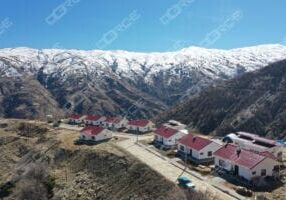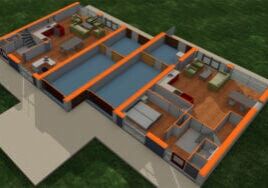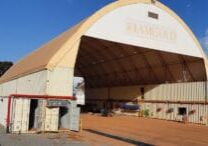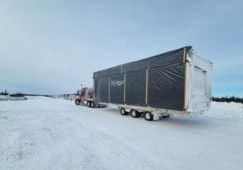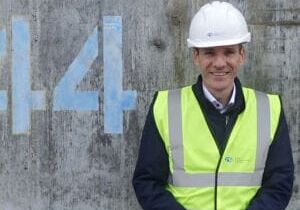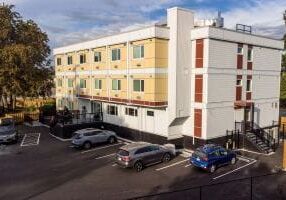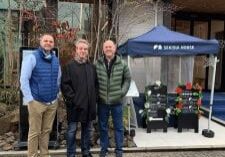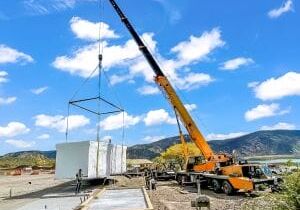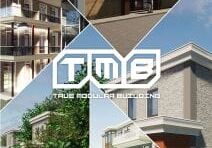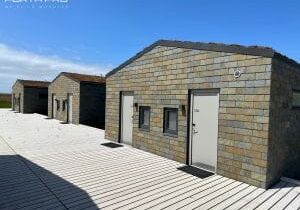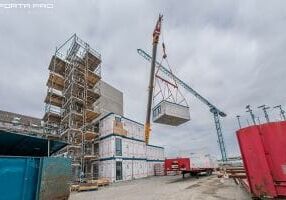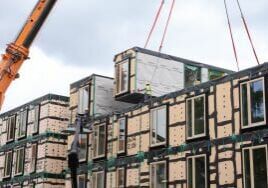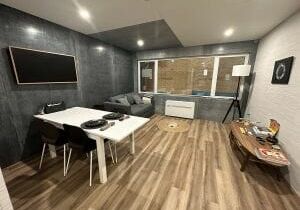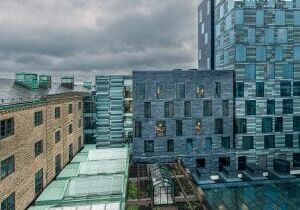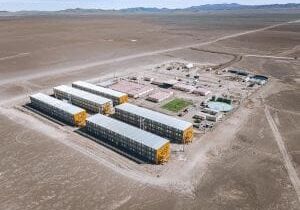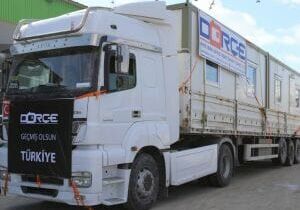About MBI's European Council & Growth Opportunities: Modular Building Manufacturers and Builders in Europe
Welcome – Bienvenido – Bienvenu – Benvenuto – Willkommen
The Modular Building Institute Board of Directors recently voted to move forward with a plan to reach out and garner support from fifty European companies willing to pay 1,500 Euros to join MBI, with the understanding that this will lead to the possible creation of a more formal MBI Europe with an office and staff based in Europe. As part of this outreach effort, we are excited to announce that plans are being finalized to bring MBI’s World of Modular Conference to Brussels, Belgium in October 2024.
This event is in addition to MBI’s annual World of Modular Conference, planned for March 18-21 in Orlando, Florida. Our plans for European growth also include:
- To better connect all industry companies within Europe as well as globally.
- To better promote the industry within Europe.
- To advocate industry interests within the legislative and regulatory bodies.
- To promote a “careers in modular construction” campaign to help expand the workforce.
- To organize additional education and networking events for the industry.
These programs and services represent an expansion of the currently offered benefits our European members already enjoy. MBI currently represents twenty-eight European-based modular companies and wants to build upon that foundation.
We are asking your company to sign this “expression of interest” form so that we can better gauge the industry interest in building a more formal “MBI Europe.”
European Council Directory
European Events
The Modular Building Institute sponsors and hosts events, meetings, and summits in Europe in order to facilitate networking and grow awareness of the commercial modular construction industry.
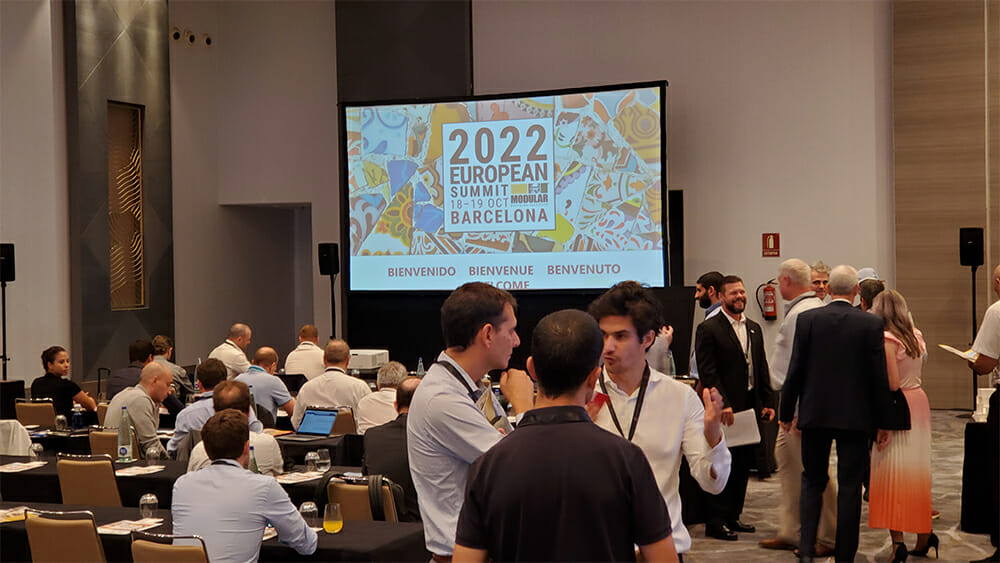
Looking for a partner for your next modular building project in Europe? At the Modular Building Institute, you can quickly and easily find qualified modular builders, architects, and engineers in Europe that provide the services you need. No matter the size, scale, or scope of your project, you can trust that one of our members will be right there working alongside you to ensure your vision is executed to perfection. Their experience and expertise will be invaluable assets you can rely on from conception to post-construction. Use the search feature to find contractors in your area now, and you can conveniently request estimates and any other information you need.
Why Work with Our Modular Builders in Europe?
As the largest modular construction association in the world, the Modular Building Institute has an extensive directory of modular builders, manufacturers, and designers in Europe that will bring experience and expertise to your project. To become an MBI member, commercial modular construction professionals must consistently demonstrate a commitment to quality, safety, and integrity. All members take a pledge to treat all suppliers, manufacturers, and vendors with the utmost professionalism, promote safety and quality on every project, and conduct themselves with honesty and integrity. Additionally, our members stay up to date on building codes for each country in Europe.
MBI modular builders are some of the very best in the business, and their knowledge and skills will aid your commercial construction project in a variety of ways. Here are just a few of the benefits of working with one of our modular builders in Europe:
- Sustainability: Modular buildings are already very environmentally friendly – there is less waste produced during the construction process, and the materials used can make buildings more energy efficient. Working with an MBI modular builder will help ensure your project is completed in the best way for the planet.
- Faster construction: Our modular builders in Europe have completed all kinds of projects over the years, and they can help you complete your project much faster. On average, modular building projects can be completed up to 50% faster when compared to traditional construction.
- Limitless design opportunities: There is no limit to the type of building that can be designed with modular construction.
- Safety: The construction industry is known for being hazardous, from falling materials to dropping from dangerous heights. However, in the Dodge Smart Market Report of Modular Construction and Prefabrication, of the responses received 89% indicated that modular construction demonstrates safety benefits, such as less heavy lifting, exposure to heights, and inclement weather.
We’re proud to say that the modular builders in Europe that work with The Modular Building Institute have been trusted by architects, developers, contractors, engineers, and property owners across the world. Explore our directory of members today.
European Modular Industry Snapshot
MBI represents 25 European companies and obtained revenue data from eleven modular building manufacturers in Europe. Based on this data, the average manufacturer revenue in 2020 was $9,355,909, virtually even with 2019.
As reported, revenue was generated from the following markets:
- Multifamily = 48.6%
- Institutional & Assembly (workforce housing, construction, correctional) = 16.8%
- Bathroom pods = 10.5%
- Office and Administrative = 6.9%
- Retail = 5%
- Education = 4.5%
- Healthcare = 2.7%
- Other/Not classified = 4.9%
Seven manufacturers provided factory production data with an average of 29,303 square meters (or 96,138 sq. ft.) produced in 2020 by modular building manufacturers and builders in Europe. These factories had an average of 112 workers.
MBI obtained data on 13 projects across a variety of markets and European countries completed over the past three years. The projects were 1,204 square meters on average and comprised of 16 modules. The projects took an average of 148 days to complete from approval to occupancy. The modular cost made up an average of 42 percent of the total cost per project.
Compared to U.S. market data, European projects can be smaller on average and more heavily concentrated in fewer markets. For example, bathroom pod production is much more prevalent in Europe than in the United States.
However, for the multifamily market, the average module size is larger in Europe, approximately 75 square meters (or 807 sq. ft.) for the projects reviewed compared to 677 sq. ft. per module in the U.S.
International Modular Construction Articles
DORÇE Navigates Mountainous Terrain, Extreme Weather to Help Rebuild Türkiye
The February 6 earthquakes in 2023 were enormous. In response, DORÇE moved quickly, obtaining a government bid to help create housing and multipurpose structures—both temporary and permanent—for earthquake victims and laborers hired for reconstruction efforts.
Panel Replacement Adds Years of Life to Navy Vessel
Panel Built, Inc., recently replaced all the wall and roof panels on a two-story US Navy barge deck house that the company had originally installed 30 years ago, giving the vessel new life. Now, the commanding officer of the unit that uses the barge said the difference between the condition and appearance from when the barge left their facility to when the project was complete was beyond his expectations of what was possible.
True Modular Building Seeks to Revolutionize Housing. It’s Next Stop: MBI’s World of Modular Europe
True Modular Building (TMB) specializes in crafting attainable, eco-friendly, and comfortable build-to-rent (BTR) housing with modern designs and customizable features, ensuring that residents feel at home both today and tomorrow.
From Toronto to Suriname: A Global Modular Building Story
When I AM Gold – a Canadian gold mining operation based in Toronto, Ontario – wanted to expand its mining operations in Suriname, it knew it would also need to expand its infrastructure. More specifically, they needed to build a mechanical services compound that would allow their local crews to maintain and equipment critical to their mining operations. They also knew that it would be a challenge.
Arctic Security and Sovereignty: The Role of Modular Structures
While the geopolitical challenges in the Arctic are immense, the physical environment of the region presents its own set of obstacles. The harsh climate, extreme weather conditions, and logistical difficulties make it challenging to establish and maintain a sustained presence in the Arctic. In this context, modular structures offer a practical and effective solution, providing the flexibility, speed, and resilience needed for operations in such a remote and hostile environment.
The Digitalization of Offsite Construction: Trends & Best Practices to be Featured at World of Modular Europe
Speakers from around the UK and Europe will be presenting at World of Modular Europe, including Michael Hough, principal at Ireland’s MJH Structural Engineers, and Franco Vietti, associate at Holland-based Green Prefab. Both Hough and Vietti will be sharing—among other things—their insights on the industry based on their 20-plus year careers.
World of Modular Europe to Bring Industry Insights, Expertise to Brussels
Speakers from around the UK and Europe will be presenting at World of Modular Europe, including Michael Hough, principal at Ireland’s MJH Structural Engineers, and Franco Vietti, associate at Holland-based Green Prefab. Both Hough and Vietti will be sharing—among other things—their insights on the industry based on their 20-plus year careers.
Aster Place by ROC Modular
Aster Place, a supportive housing building in Richmond, British Columbia, Canada, won the Best of Show Award and Honorable Mention for relocatable structures in the social and supportive housing category at this year’s World of Modular conference.
Touring Japan’s Offsite Construction Industry: An Interview with James Haas, Offsite Construction Sales Manager for Nichiha
Nichiha USA, a premier provider of building envelope solutions and member of the Modular Building Institute (MBI), recently partnered with MBI for a trip to Japan to visit the Nichiha home office in Nagoya as well as several other offsite manufacturers around the country. Besides learning about different offsite building methodologies and systems, the trip was an excellent chance for both MBI and Nichiha to create closer ties with potential industry partners in Japan.
Supply and Demand: Solving Canada’s Housing Crisis One Relocatable Housing Unit at a Time
Not only do Moda Modular’s repurposed employee housing solutions cut the emissions related to construction down to nearly zero, but they also keep building materials that are often not biodegradable from slowly decaying in storage facilities.
It’s the classic environmental mantra of reduce, reuse, and recycle, scaled up and applied to building after building.
26 Stories in 5 Days – How BROAD Sustainable Building is Redefining the Speed of Modular
On January 7, 2024, BROAD Sustainable Building began assembling the new 26-story mixed-use Jindu Residential Tower. On January 11, just five days later, construction was completed.
For True Modular Building, Sustainability is Part of Yesterday, Today, and Tomorrow
For Carel van Duuren, the 71-year-old CEO of True Modular Building, sustainability is more than just his legacy—he’s thinking about the future of society at large. How do you make things infinitely repeatable and simple? How can you make sure you’re contributing to the economy without adding extra waste or using increasingly precious resources? And how can you do this, and quickly?
Hage’s Badehotel — Case Study — Denmark
For this project, Forta PRO delivered 72 buildings, 144 modules, with 5,200 m2 of gross modular area. With final onsite completion in June 2023, it provides exceptional long-stay accommodation in a stunning and serene environment.
Unity Malmö – New Student Housing in Southern Sweden from Forta PRO
The city of Malmö in southern Sweden is set to welcome a new student housing project Unity Malmö, comprised of 5 building blocks, 450 micro-living apartments, where Forta PRO delivered 269 modules, total of 9,671.9 m2.
Sustainable and Energy-Efficient Solutions from DMDmodular
DMDmodular has recently achieved a significant milestone by successfully completing a relevant energy-efficient housing project, fully financed by EU funds, that tackles the industry’s most pressing challenges.
homeD: On a Mission to Improve Affordable Housing in Canada
homeD’s mission is to alleviate homelessness and in British Columbia and they’ve developed unique modular housing products to that end. The company also embraces a strong social justice ethic, providing solutions for marginalized communities who face housing challenges, and is aligned with the UN’s Sustainable Development Goals.
Modular Hotel Room Prototype Shows Global Investors the Speed and Versatility of Modular Building
Forta PRO, a modular building manufacturer in Latvia, recently partnered with Marriott to create a modular hotel room based on their current design, Moxy. The two connected in Copenhagen in 2019, when Marriott expressed an interest in creating a mock-up to show investors the quality available through modular construction techniques. The stand-alone room is currently located in Frankfurt and is available for investors to visit.
PROMET: Providing Award-Winning Workforce Housing in Chile & Beyond
South America is a mining powerhouse, producing a substantial amount of the world’s silver, copper, tin, zinc, lithium, and nickel, and the mining industry requires a substantial amount of infrastructure to operate. That infrastructure includes workforce housing and office space that modular builders such as PROMET provide.
Turkish Manufacturer Has Long History of Responding to Disaster
On February 6, 2023, a 7.8 magnitude earthquake rocked southern and central Turkey, killing over 2,300 people and injuring 10,000 more. DORCE responded with the force of its huge production capacity, dedicating all their abilities to producing emergency houses for those displaced by the disaster with help from AFAD (Disaster and Emergency Management Presidency of Turkish Republic).
Observations from My Travels to Ukraine
With over 2,300 damaged or destroyed schools, the potential for modular construction as part of the rebuilding effort is huge. In fact, mayors from several cities asked me about this exact issue when I visited in May. And, of course, the needs for medical clinics and housing are greater than ever.

